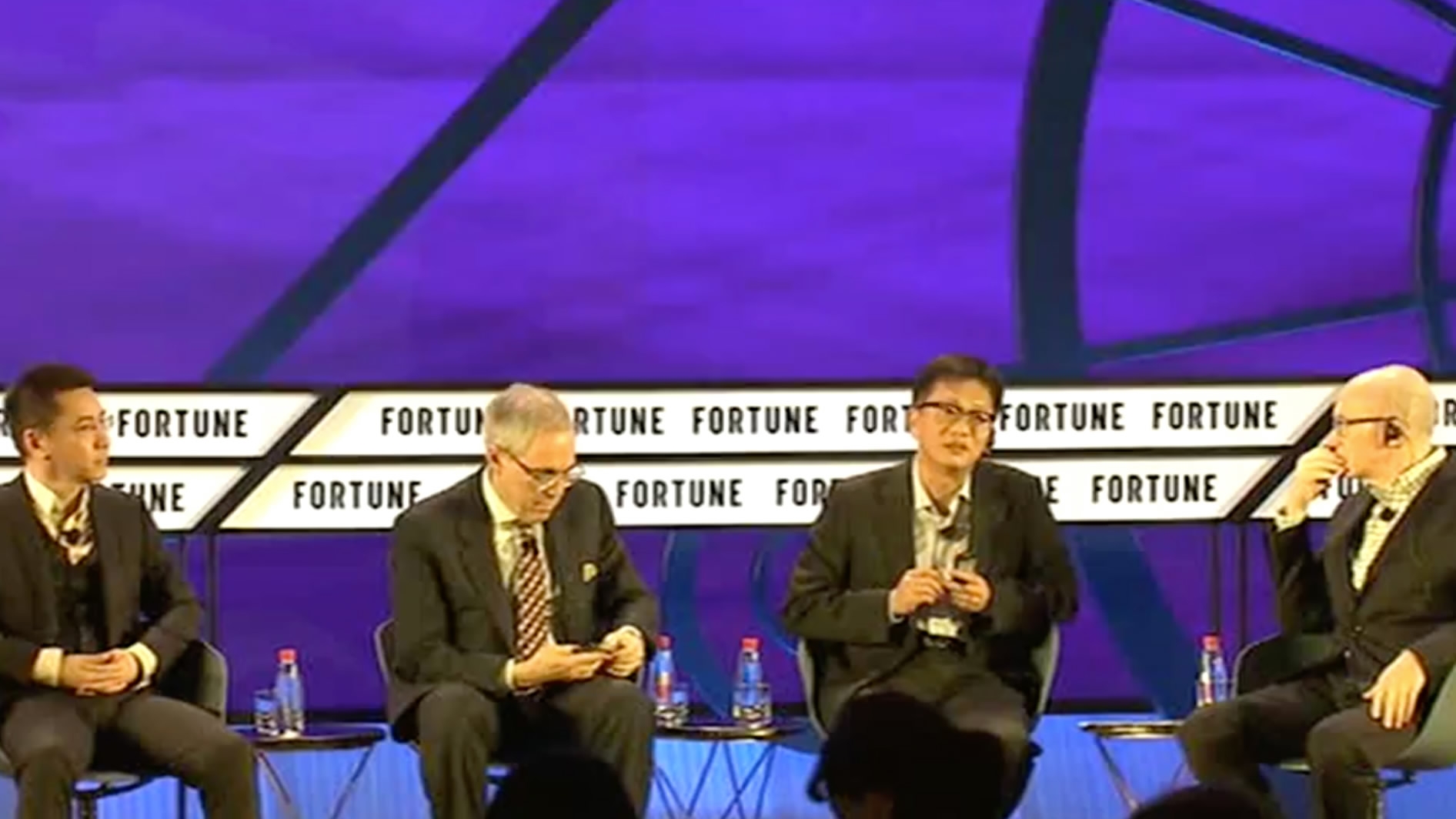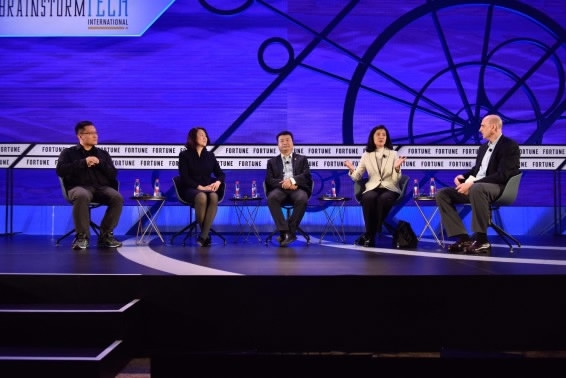
Tech & Sci
12:06, 06-Dec-2017
Can China overtake the US to lead the tech world?
By Ge Yunfei and Dai Piaoyi

The Fortune Brainstorm Tech
International Conference is underway in southern China where world leaders in the innovation economy are putting their heads
together to try and find the next Alibaba.
Nisa Leung, a famous venture investor and a judge for one of the start-up competitions at the conference in Guangzhou, told CGTN that the landscape of China's tech sector has changed completely in the past decade.
For start-up entrepreneurs, China is now offering better chances to bring innovative ideas to fruition, especially in hardware-related industries.
In the previous era, many Chinese companies modeled their business on their counterparts in Silicon Valley, said Wang Jianjun, CEO of a robotics start-up in Shenzhen. But he believes China could be the front runner in the future.
Wang cited China's advantage of owning the world’s most comprehensive supply chain, saying, "This is vital for hardware start-ups.”
China has also the world’s biggest population of engineers which is enticing foreign firms to relocate their research headquarters here.
Nimrod Elias is the CEO of an Israeli startup TapReason that is about to move to Beijing.
“We see the amazing engineers growing here. It would be a very good combination,” he said.
But the situation is not all rosy for China. As tech giants like Alibaba, Baidu and Tencent become too big to challenge, small start-ups may have to be content with finding their own market niches.

World leaders in the innovation economy are putting their heads together to try and find the next Alibaba. /CGTN Photo
World leaders in the innovation economy are putting their heads together to try and find the next Alibaba. /CGTN Photo
“The downside of the current situation is that start-ups now need really game-changing technology, business models or ideas to survive the fierce competition against the formidable giants like Baidu, Alibaba and Tencent,” said Wang Weidong, the chairman of Udo Media.
The old notion of China as a tech copycat nation is being rapidly replaced by the emerging new reality of home-grown innovation. But industry insiders say China still has a lot to do on fundamental research.
President of DJI, Roger Luo, admits that compared with China, the US has the international talent advantage.
But he also believes that China’s e-commerce and online payment industries now play a vital role in the world and in these areas, Chinese companies are as good as their American counterparts.
Luo suggested that China needs to invest more in research. “It is the key for China to go further and achieve more in the future,” he said.
And with the Chinese government calling for innovation as the driving force of the economy, the future looks promising.

SITEMAP
Copyright © 2018 CGTN. Beijing ICP prepared NO.16065310-3
Copyright © 2018 CGTN. Beijing ICP prepared NO.16065310-3